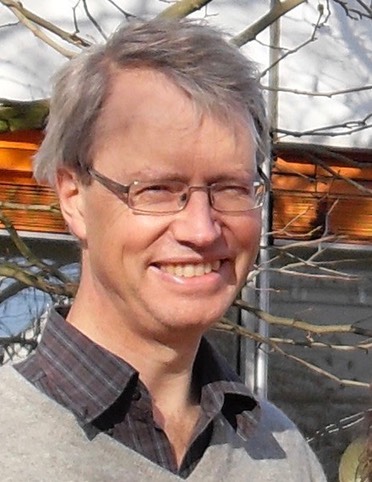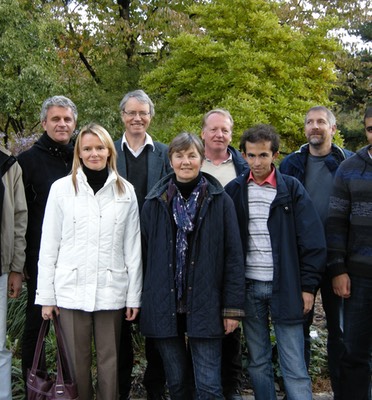Life involves information processing at its core, both to preserve and evolve its rich functions. My research is toward understanding and harnessing the power of evolutionary and physical self-organization in the construction of information and material processing systems in the natural and technical domains. This involves a combination of theoretical, constructive and experimental approaches:
- statistical physical characterisations of fitness landscapes
- mathematical theory for ion distributions around DNA
- automata models of emergent functionality in molecular evolution
- equilibrium structure ensemble computations for RNA
- spatially resolved molecular evolution theory and experiments
- reconfigurable computers for large scale spatial molecular evolution
- microfluidic flow reactors for evolutionary biotechnology
- synthetic DNA-programmed systems for cooperative evolution
- spatially resolved single molecule detection for tracking DNA
More recent research achievements since 2000 include
- simulation of emergence of genetic coding
- optically programmable DNA computing
- microfluidic "life support" to complement chemistry for artificial cells
- genetic self-assembly and multiphase evolution models
- multiphase simulations of endocytosis for complex cells (like hepatocytes)
- efficient computation of discrete molecule stochastic chemical kinetics (PRESS)
- electronic chemical cells and the concept of electronic genomes
- reversible attachment of DNA to gels for programmed selective transport
- autonomous smart CMOS microparticles (lablets) with programmable electrochemistry
- nanorobot designs for nanorobotic surgery
Chemical information systems are vital for controlling natural functions in living organisms and are becoming increasingly important at the interface between three rapidly expanding technologies: Information Technology (IT), Biotechnology (BioT) and Nanotechnology (NanoT).
My research involves theory and experiment into chemical and electronic systems which self-organize and evolve like living systems, processing information to solve complex problems, using a synthetic systems approach. My aim is to develop novel forms of constructive information processing systems based on and extending the core principles of living systems.

